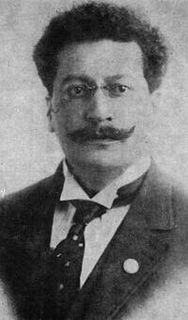A Quote by Thomas Jefferson
I hold it that a little rebellion, now and then, is a good thing, and as necessary in the political world as storms are in the physical. Unsuccessful rebellions, indeed, generally establish the encroachments on the rights of the people, which have produced them. An observation of this truth should render honest republican governors so mild in their punishment of rebellions, as not to discourage them too much. It is medicine necessary for the sound health of government.
Quote Topics
Discourage
Establish
Generally
Good
Good Thing
Government
Governors
Health
Hold
Honest
Indeed
Little
Medicine
Mild
Much
Necessary
Now
Now And Then
Observation
People
Physical
Political
Produced
Punishment
Rebellion
Render
Republican
Rights
Should
Sound
Storms
Them
Then
Thing
Too
Too Much
Truth
Unsuccessful
Which
World
Related Quotes
As the people are the only legitimate fountain of power, and it is from them that the constitutional charter, under which the several branches of government hold their power, is derived, it seems strictly consonant to the republican theory, to recur to the same original authority, not only whenever it may be necessary to enlarge, diminish, or new-model the powers of the government, but also whenever any one of the departments may commit encroachments on the chartered authorities of the others.
Anger should be especially kept down in punishing, because he who comes to punishment in wrath will never hold that middle course which lies between the too much and the too little. It is also true that it would be desirable that they who hold the office of Judges should be like the laws, which approach punishment not in a spirit of anger but in one of equity.
When the taste for physical gratifications among them has grown more rapidly than their education . . . the time will come when men are carried away and lose all self-restraint . . . . It is not necessary to do violence to such a people in order to strip them of the rights they enjoy; they themselves willingly loosen their hold. . . . they neglect their chief business which is to remain their own masters.
The Declaration [of Independence] was not a protest against government, but against the excess of government. It prescribed the proper role of government, to secure the rights of individuals and to effect their safety and happiness. In modern society, no individual can do this alone. So government is not a necessary evil but a necessary good.
Let there be two possible things, A and B, one of which is such that it is necessary that it exists, and let us assume that there is more perfection in A than in B. Then, at least, we can explain why A should exist rather than B and can foresee which of them will exist; indeed, this can be demonstrated, that is, rendered certain from the nature of the thing.
Medicine deals with the states of health and disease in the human body. It is a truism of philosophy that a complete knowledge of a thing can only be obtained by elucidating its causes and antecedents, provided, of course, such causes exist. In medicine it is, therefore, necessary that causes of both health and disease should be determined.
The exquisite sight, sound, and smell of wilderness is many times more powerful if it is earned through physical achievement, if it comes at the end of a long and fatiguing trip for which vigorous good health is necessary. Practically speaking, this means that no one should be able to enter a wilderness by mechanical means.
When, in the course of human events, it becomes necessary for one people to dissolve the political bands which have connected them with another, and to assume among the powers of the earth the separate and equal station to which the laws of nature and of nature's God entitle them, a decent respect to the opinions of mankind requires that they should declare the causes which impel them to the separation.





























